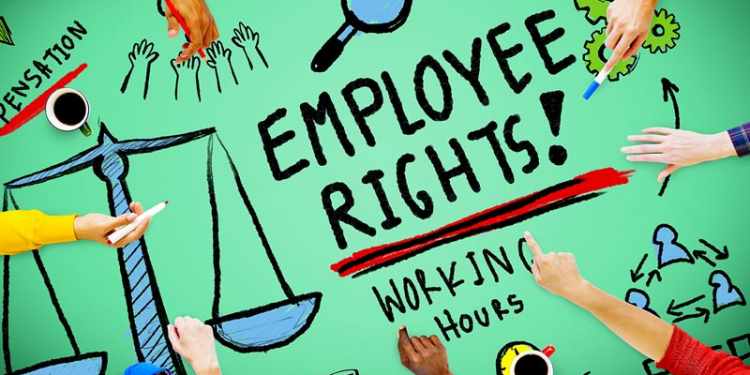Although entrepreneurs are becoming more commonplace than ever before in the USA, 90% of people still work for someone else, whether it’s from home or at a place of business.
These workers still face inequalities in pay and fair treatment, despite far-reaching laws and changing perspectives. These circumstances aren’t always illegal though.
If you’re still working for a boss, it’s important to know the basic rights of an employee in the workplace, so you know for sure if you’re getting what you deserve.
1. The Right to Fair Pay and Reasonable Hours
The Federal Government works hard to determine fair wages for each occupation in the USA, and employers must comply.
Employees may not work for more than 40 hours a week. If they need to do so regularly due to an excessive workload, employers must either pay them more or hire additional staff.
Voluntary overtime is a grey area so employers should keep tabs on workers that regularly put in extra hours and make the necessary adjustments.
2. Legal Right of an Employee to Equal Treatment
Anti-discrimination laws are widespread in society and apply equally to employee rights in the workplace. No employer may discriminate against an employee based on the following:
- Race
- Gender
- Denomination
- Physical disability
- Age
- Sexual orientation
This applies to every area of the business, be it hiring, pay, or promotional opportunities. What’s more, it’s the employer’s responsibility to ensure that other workers don’t harass or bully others based on these criteria.
Unfair treatment after maternity leave can also be a form of harassment. If you can’t get the same opportunities as your co-workers because you recently gave birth, then you can file a case with a Pregnancy Discrimination Lawyer who is an expert in handling cases like this.
3. Rights of an Employee to a Safe Workplace
Workplace injuries are far too common in high-risk workplaces. There are stringent OHS rules that dictate relevant safety standards for these occupations.
Employers must provide thorough training in safe work practices to ensure all workers know how to complete their tasks safely. Also, they must carry workers’ compensation insurance so that their employers receive relevant compensation if they’re injured.
According to Sweet Lawyers, an employer must follow specific steps when someone’s injured at work. If they don’t comply they could face hefty fines, or worse.
4. Employee Rights Regarding Privacy at Work
It’s important to note that employee privacy does not apply to e-mails and internet usage undertaken on the employer’s communication system.
It does, however, extend to personal emails and voicemails addressed only to the employee. Telephone conversations on your own device are also considered private.
Privacy rights also apply to personal possessions like briefcases, handbags, and private lockers.
5. Whistleblower Protection for Employees
The rights and benefits of an employee extend to protection from repercussions related to reporting their employer for rights infringements.
Many employees are wary of taking steps against their companies for fear of retaliation. It is illegal for any employer to act against an employee in these cases.
As a worker, it’s important to follow the correct procedure when you’re reporting your employer for infringements, so always get a lawyer on your side in these cases.
The Fine Line Between Work and Life
Many employees become so embroiled in their jobs that they lose sight of everything else. Don’t fall into a cycle of workplace abuse, whether it’s intentional or unintentional.
We cannot overstate the importance of knowing your rights as an employee. It’s easy for employees to take advantage of their workers since they’re the ones who control their livelihood.
Don’t let your boss get the better of you, know your rights. The law adamantly supports the rights of an employee, so you’re never alone when confronting unfair work practices.
For more information and advice on the ups and downs of working life, keep browsing our blog.


